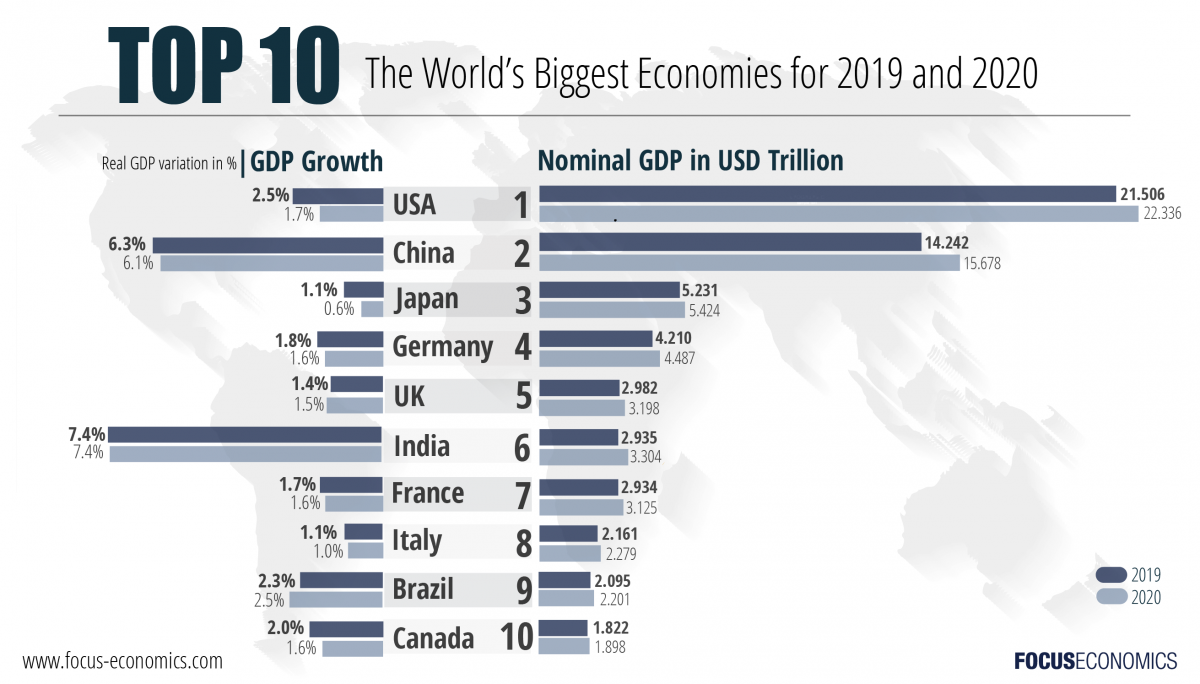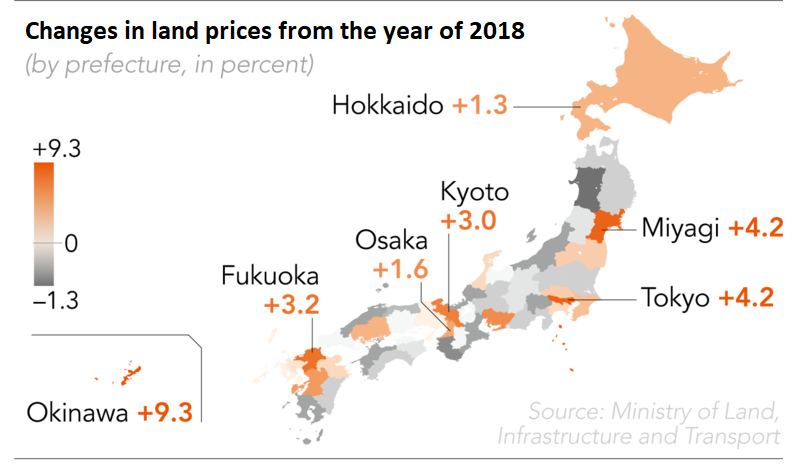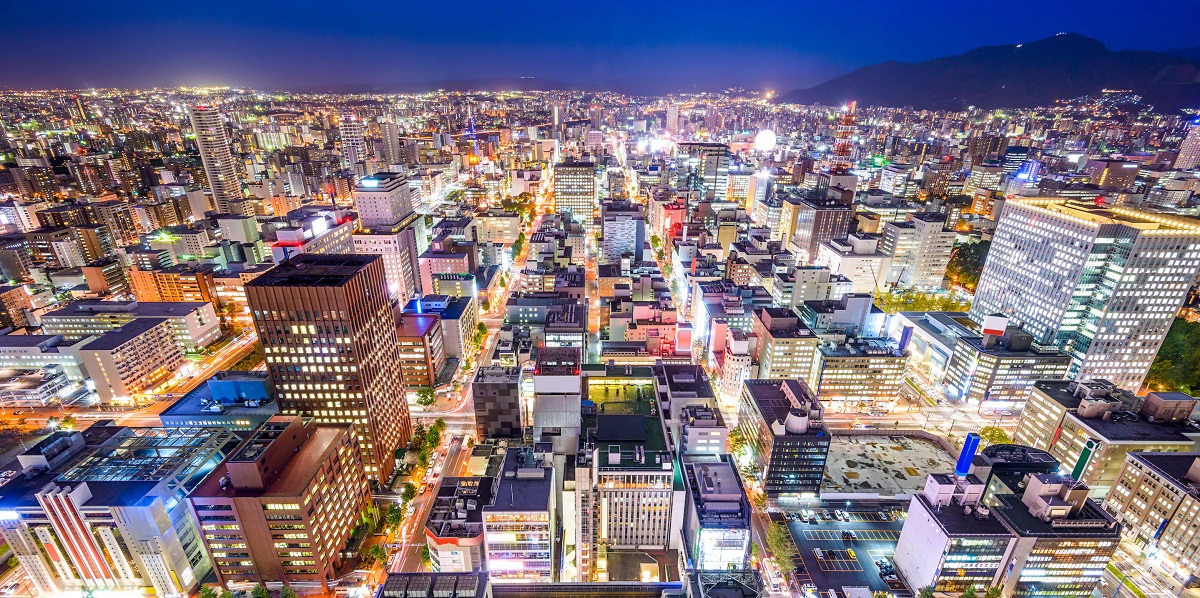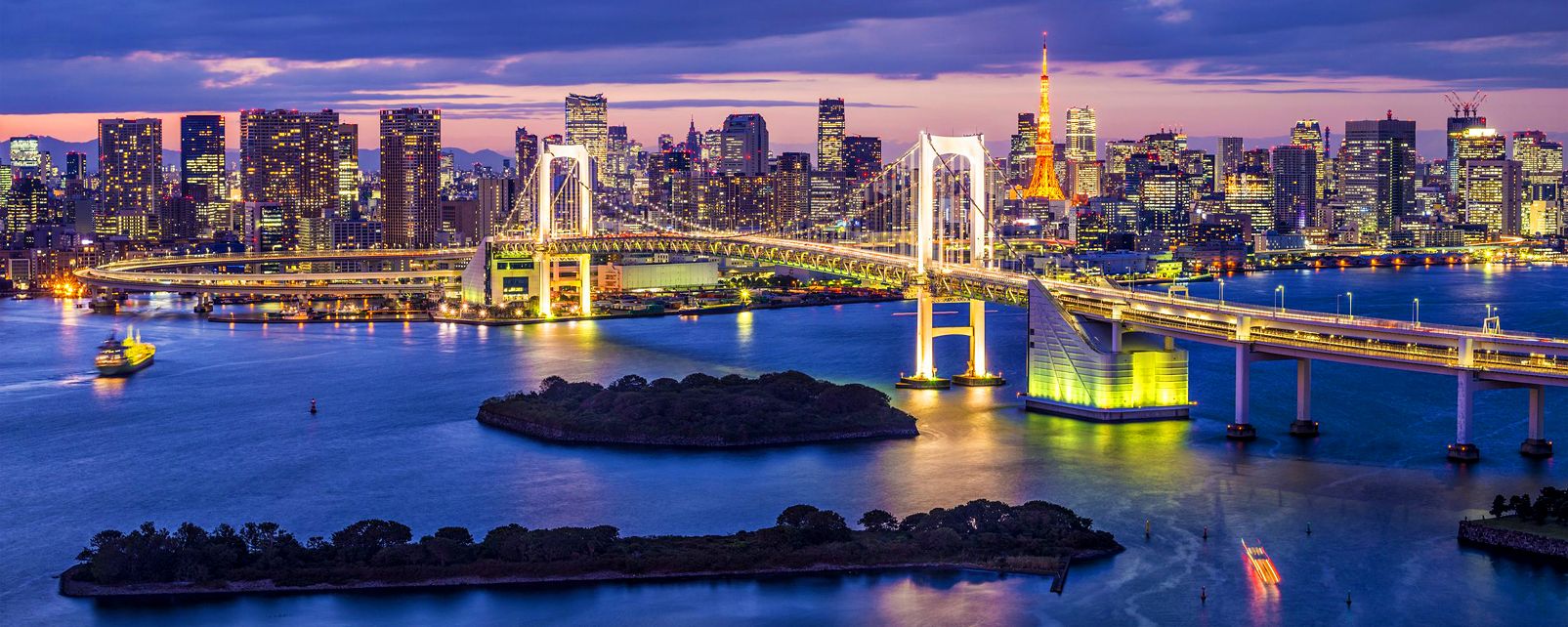Why Invest in Japan Property Market?
The Third Biggest Economy in the World
The Japanese economy currently ranks third in terms of nominal GDP forecast to come in at USD 5.2 trillion in 2019. (Source from Focus Economics)
Undervalued Property Market and Low Asset Price
Before the 1990s, Japan was the equivalent of
today’s China, growing rapidly during the 1960s, 70s and 80s. However, since then,
Japan’s economy has not been quite as impressive. During the 1990s, also termed
the Lost Decade, growth slowed significantly, largely due to the Burst of the
Japanese Asset Price Bubble in early of 1992. Financial and Real Estate markets
suffered and tumbled. The decline seemed unstoppable: Land prices fell every
single year from 1993 to 2013, dropping more than 70% over that span.
In 2013, Prime Minister Shinzo Abe launched his “Abenomics”, it combines fiscal expansion, monetary easing, and structural reform. Its immediate goal is to boost domestic demand and gross domestic product (GDP) growth while raising inflation to 2 percent. Abe’s structural policies aim to improve the country’s prospects by increasing competition, reforming labour markets, and expanding trade partnerships. The Central Bank of Japan launched quantitative and qualitative monetary easing (QQE) in 2013 and announced QQE2 In October 2014.
Japan's relatively low property prices and
underutilized assets mean there is plenty of potential. The capacity to catch
up is very, very great.

Japan is one of the
World’s Safest Countries
Japan has been ranked as the 9th most peaceful
country among 163 countries in the world and the 3rd in the Asia-Pacific
region. Result released in the 2018 Global Peace Index (GPI) compiled by the
Institute for Economics and Peace (IEP).
The results of the fourth annual GPI which is
composed of 23 peace indicators including safety and security in society, and
32 related factors including civil liberties and hostility to
foreigners/private property, reinforces that Japan is one of the safest
countries in the world.
While Japan is already well known for its high
level of safety and low levels of crime, this ranking reconfirms the advantages
of choosing Japan as a travel destination and is especially reassuring for
those travelling alone or with children.
In addition to a superior level of safety and security, the general honesty in Japanese society is evident by the number and type of items handed in at Lost and Found counters in the Tokyo Metropolitan area. (Source from Institute for Economics and Peace)

Japan Property Price Risen
Since 2013, Japanese property price rebound is underway, led by big cities and popular tourist destinations but extending to provincial towns long neglected by foreign investors and domestic homebuyers alike. Residential land prices in Tokyo, Osaka, Kyoto, Fukuoka and Nagoya have risen for six straight years.
There are several factors at work. Low interest rates are fuelling investment. Globalization, urbanization, tourism and the rise of China are all creating powerful tail winds for redevelopment.
When will be the best timing to invest in Japan property market? The answer is NOW!
Many of the property price drivers are global phenomena. The low interest rate environment across much of the world has fuelled investment in non-traditional assets, including property. Long-term investors such as insurers and pension funds have been especially aggressive in hunting for large real estate projects in Japan.
Then there is China's growth, which has lifted the living standards of citizens to the point where many can afford to travel abroad. Add in rapid globalization, and you have the makings of brisk property demand, at least in select areas.
In 2014, Blackstone Group (U.S. based multinational private equity) bought 200 blocks of flats from General Electric’s property arm for more than JPY 190 billion.
In 2015, Blackstone Group again acquired 59 residential properties in Tokyo, Osaka and Nagoya when it bought out Japan Residential Investment for $450 million.
In late 2017, Norway's Government Pension Fund Global, one of the world's largest sovereign wealth funds, purchased five Tokyo commercial properties.
In 2019, Blackstone Group purchased a portfolio of Japanese warehouses that includes online shopping giant Amazon’s Greater Tokyo distribution centre for around JPY 100 billion.
In March of 2019, U.S. real estate investment firm GreenOak bought 21 assets from Takeda Pharmaceutical, including Osaka headquarter for about JPY 50 billion.
In June of 2019, Allianz Real Estate
said that it was investing $600 million into China and Japan real estate
investment funds managed by logistics real estate developer and fund manager
GLP.

About Garnet Property
Garnet Property is a team of expertise in Japan Real
Estate. We are enthusiastic in Japan culture as well as passionate with real
estate. This drove us to invest in Japan properties and at the same time we
assist more foreign investors to fulfill their dream in investing overseas
properties in Japan and we are more focus on the properties in Fukuoka, Osaka, Tokyo, Kyoto and Kobe. As what we went through in the past decade, we understand
your need and concern and we will be your trusted long-term partner in
purchasing properties and further to the managing of purchased properties.
Let's start our journey here!

